It is well known that under difficult circumstances people show their real nature. Our capacity of endurance, and the empathy with others. These days, we witness contradictory examples around the world that mix applauses and generous attitudes, with incriminating and racist behaviors. However, in general, the Muslim population is putting in practice their culture of solidarity and social involvement with the underprivileged, giving a good example of civic spirit.
Inés Eléxpuru – FUNCI
Rabat, April 18, 2020 (translation: Alfonso Casani – FUNCI)
The COVID-19 crisis is shedding light to many different attitudes around the world, that change and evolve as the lockdown and the alarm state continue. These include the well-known applauses to health workers, collective prayers from the balconies (as we witnessed during Easter in Spain, or among groups of Muslims), or even the singing of the national anthem and the applauses to security forces and health workers, as it happens in Morocco. There are also others, such as Cardinal of Rabat, Cristóbal ópez Romero, who promote interreligious dialogue and call for collective prayers. In fact, there are many religious leaders, especially among the three monotheistic faiths, who are calling to dialogue and common solidarity. Everything is valid and welcome.
However, there are also negative attitudes of rejection, discrimination and social pressure. Lately, we have witnessed the complains (more or less polite) of neighbors calling for health or supermarket workers to move out, for fear of contagion. This “recommendations” include not to use elevators or other parts of the building. The problem is that some of these claims are made in public spaces, which have led the authorities to insist that it is forbidden to identify those sick. In some cases, the claims have been more aggressive, with messages of “get out of here” or threats.
However, there are also negative attitudes of rejection, discrimination and social pressure.
These negative attitudes aren’t only affecting these working communities, but also, in some countries, the Muslim communities. As it is well known, difficulties often contribute to point out the “others” in a cruel and petty way.
Massive gatherings
It is known that a source of transmission has been the massive gatherings of all kind, football machines, political events, religious celebrations… that have ignored the recommendations of social distancing and lockdown. We find examples of this behavior in the Church of Jesus Shincheonji, in South Corea, main focus of infection in Asia, or in the Muslim sect Tablighi Jamaat in Pakistan and Malaysia.
Furthermore, some extremist Hindu gurus recommended to drink cow urine to combat coronavirus infections, putting the population in danger.
This irresponsible and sectarian behaviors, condemned by most of religious leaders, have led to many Islamophobic and discriminatory accusations, as it has happened with far right movements in the UK. Not to speak of the discrimination and violence against Muslims in India, which has worsened during this crisis, including hashtags and online campaigns speaking of a “corona jihad”.
A source of transmission has been the massive gatherings of all kind, which have ignored the recommendations of social distancing and lockdown.
However, in spite of isolated examples (which claim that “Allah prevent us from the virus”), we have witnessed a very generous behavior from the Muslim communities. There have also been Muslim leaders that have rejected that the COVID is a divine punishment, as some claimed, and have argued that it is an opportunity to improve the Muslims’ behavior and show solidarity. Among the first was the imam from the mosque of Paris, Chems Eddine Hafiz, who also defended closing all homes and praying at home.
Many imams across the world have put the mosques (closed during the crisis) at the disposal of those most vulnerable. The distribution of food and sanitary products has been huge in many cases. The most well-known and striking cases are those of Turkey and Morocco, where, since the first day, associations and private individuals have focused in helping the others. Thus, we have seen on social networks, from Larache to Istanbul, trucks filled with goods who were left in public spaces for those in need to take. Neither have been scenes of panic, lack of supply, or fights to store food, as we have seen in other countries.
Solidarity in Turkey
In Turkey, solidarity has spread to other affected countries of the EU, such as Italy and Spain, with the sending of health material. NATO’s Secretary, Jens Stoltenberg, has even pointed this out. As the newspaper La Vanguardia explained last April 5, “last Wednesday, April 1, landed in Madrid a plane with more than 5 tons of health material from Turkey, which included 1250,000 masks, 20 anatomic masks, 750 eye protectors, 2,000 protective suits, and 1,000 liters of antimicrobial liquid, answering the call Spain made to NATO”.
The so-called Social Support Groups launched by the Ministry of Interior have provided support to the eldest all across the country.
Likewise, the Turkish civil society is also making a great effort, at a national and international level. For instance, Turkish restaurants in New York and Jersey are giving free food to those fighting the pandemic. Abdulsamet çakir, a young Turkish imam, transformed his mosque into a “market” to provide food for underprivileged people, with the motto “Take all you need, give all you can”.
The Moroccan exception
The Moroccan exception is the official slogan that has always put a smile on the faces of the critics and sceptics. But this time, the slogan seems to be true. Morocco is, no doubt, one of the countries best managing the crisis, aware of its fragile health system. This idea has been supported by many international newspapers, such as El País, or even not-so-friendly newspapers such as Le Canard Enchainé, who placed Morocco’s management in a better position than France itself. Among other things, Le Canard Enchainé praised that Morocco had limited the price of hygiene material since day one, and it had imposed the use of face masks, producing and subsidizing these masks to all the population.
Morocco has not only been an example in the adoption of preemptive measures, such as the closing of frontiers (April 12) or imposing a relative lockdown (respectful of minimum services, the individual practice of sports…), but also in the adoption of health, economic and social measures. Actually (April 30th), five million families are receiving economic support.
Morocco is, no doubt, one of the countries best managing the crisis, aware of its fragile health system.
With a population of 40 million, and when the infected cases had only reached a dozen, the country’s sophisticated security system deployed all across the country to ensure the lockdown and control the people arriving from abroad. If they were positive, several agents went to his house, facilitated him the numbers to call in case their conditioned worsened, and invited them to respect the quarantine.
The economic aids have been very relevant, both institutionally, and from the private and civil society fields. Health care is free for everyone, many people have been granted the RAMED (Regime for Medical Assistance to the Most Deprived), while those working in more “informal” activities can ask other types of direct aid. The COVID-19 Fund, created by king Mohammed VI, had reached by march the 33,000 million dirhams (2,9 million euros, approx..) to face the crisis and the post-COVID scenario.
Morocco had also exonerated many families and shops from renting taxes, electricity and water are free for a part of the population, civil servants have reduced their salaries, and some Ministers and King advisors are donating part of their salaries. Unemployment and company benefits are also under study.
Morocco had also exonerated many families and shops from renting taxes, electricity and water are free for a part of the population, civil servants have reduced their salaries, and some Ministers and King advisors are donating part of their salaries.
This is just a summary of some of the countries measures to ease the economic and health situation. But the most impressive answer is coming from its civil society and population, in a country that hasn’t always been an example of discipline.
Promoters have put apartments at the disposal of the homeless population, hotel managers are helping the foreign tourists trapped in the country, money, food and other goods are being distributed by many associations, and there is a whole network active to provide support against gender-based violence, such as ONU Femmes Maghreb, UNFM (Union Nationale des femmes au Maroc) or the FLDF (Fédération de la ligue démocratique des droits des femmes).
In Spain and other European countries, the attitude of the Muslim population has also been exemplary. We have witnessed cases such as the Moroccan shopkeeper Imad Taktak in Galicia (north of Spain), who donated all his masks and sanitizing gels to health workers, or the mosques of Pinto (Madrid), Almuñécar (Almeria) and Seville, who have placed its establishments at the disposal of the sick.
A culture of hospitality and solidarity, that draws on the sources of Islam, and preserves strong social and familiar ties, that is becoming an example in this turbulent times.

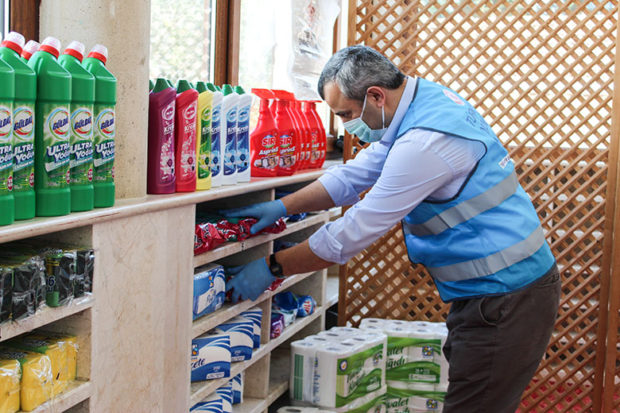
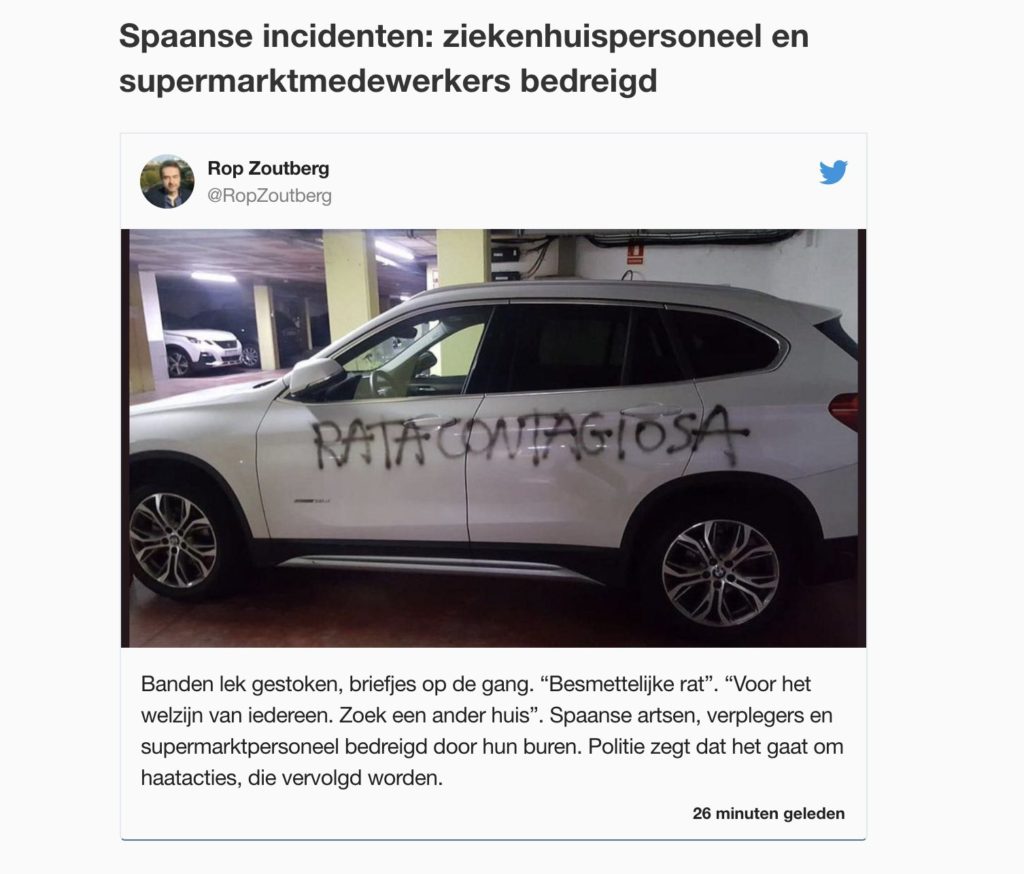
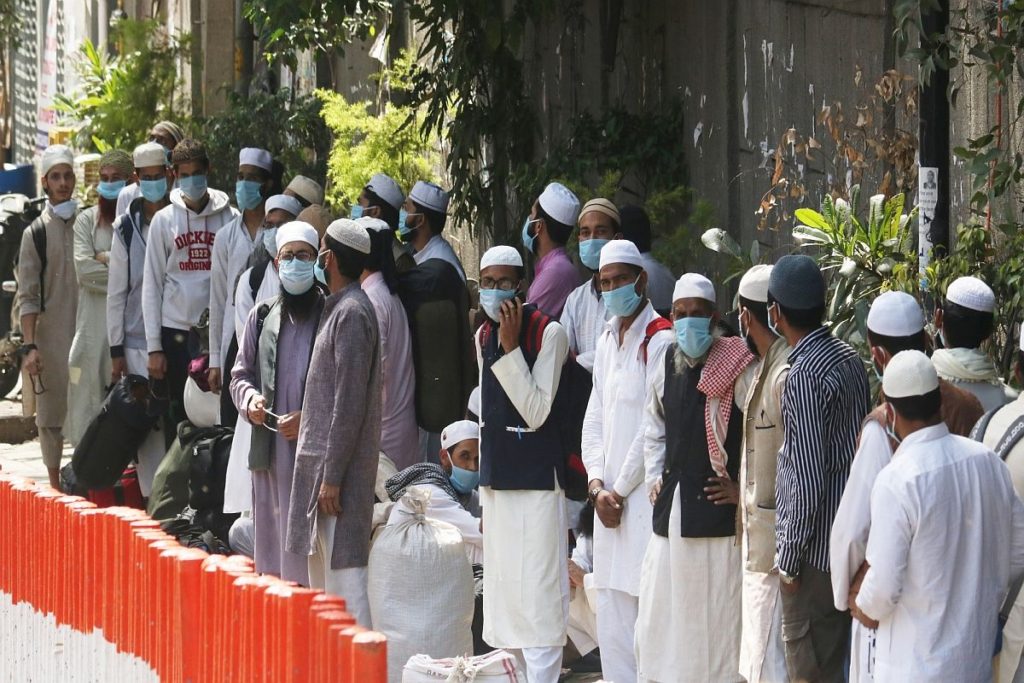
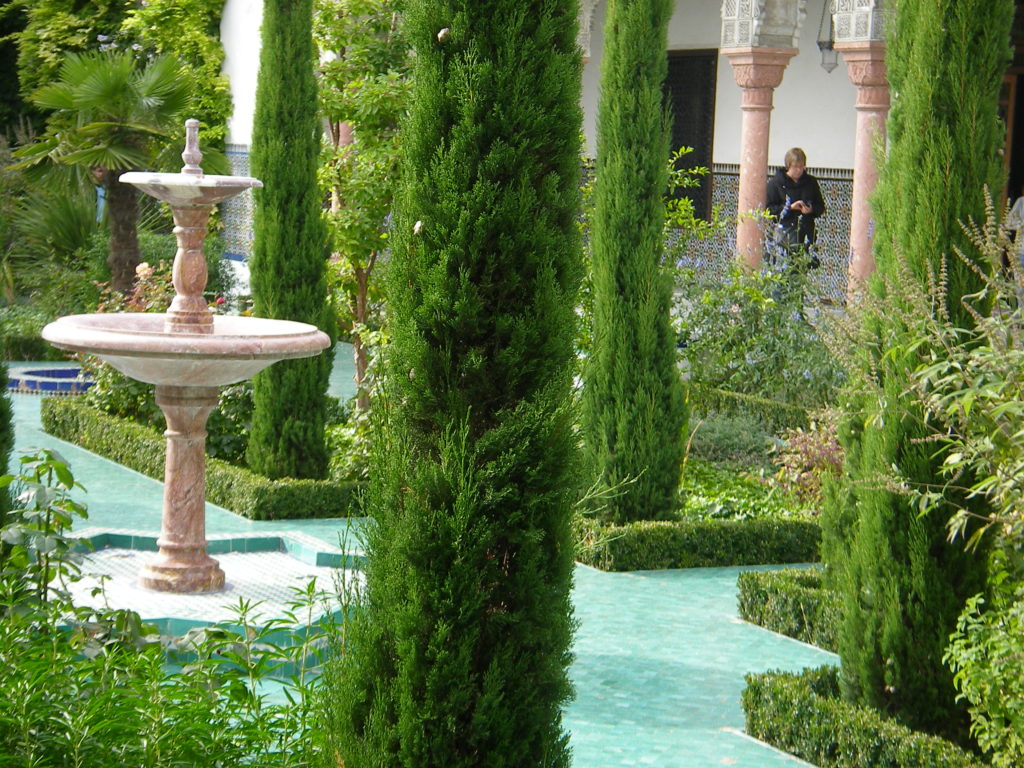
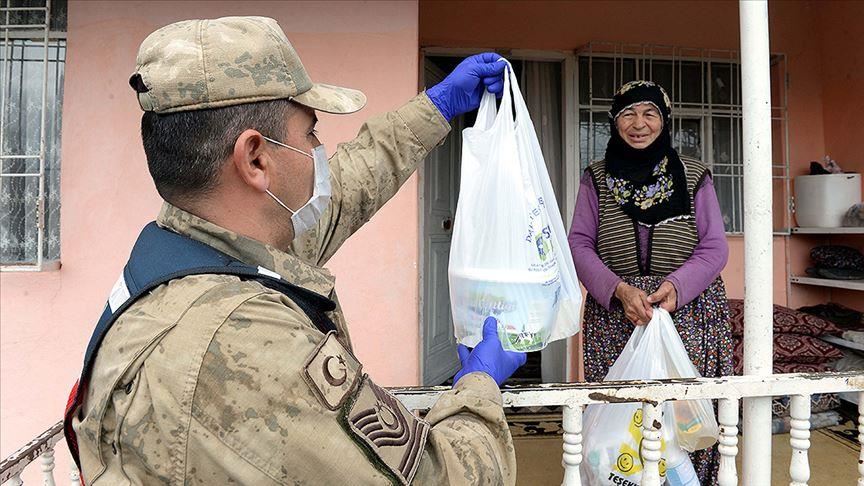
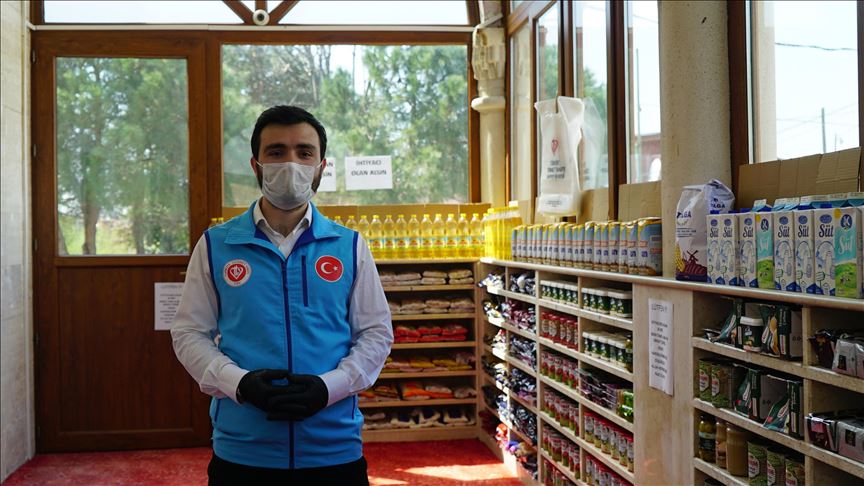

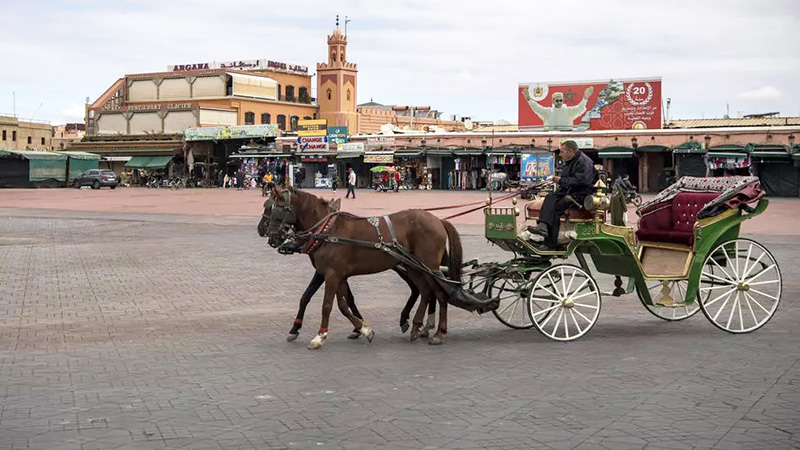
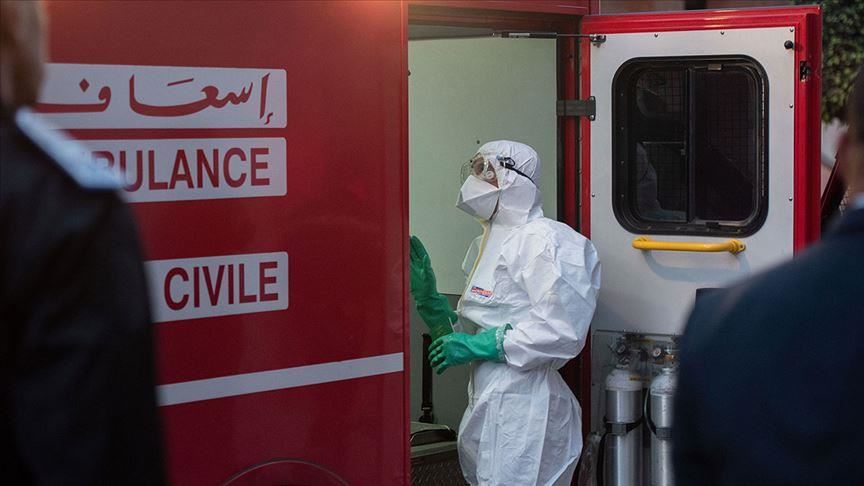


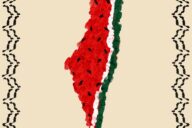










No Comments